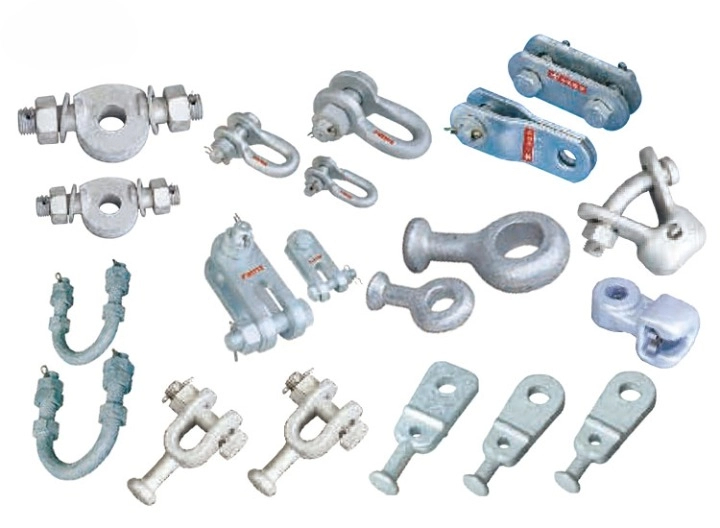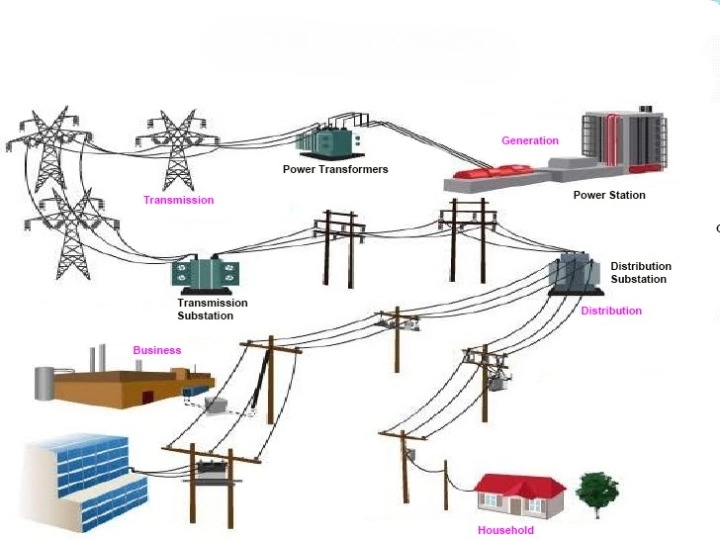
espite major concerns, nuclear energy is a type of energy that may aid in the transition to clean energy. Countries such as Argentina and Brazil will have nuclear energy plans in place by 2024, bolstering their energy security. Nuclear energy helps governments strike a balance between energy security, economic growth, and decarbonization. Nuclear energy projects in Peru and Chile are in the medium development stage. Venezuela and Uruguay are developing nuclear energy, although Paraguay, Ecuador, and Bolivia are developing it separately. Nuclear energy has applications in electricity generation, research and development (R&D), and medicinal isotopes for diagnostics. However, the use of nuclear energy has been limited in South America due to some issues. This encompasses environmental, economic, and technological achievements in renewable energy.Electrical cables from nuclear power facilities connect to the transmission grid using overhead line connectors.
Overhead line connectors are specifically designed to manage the high voltages and currents generated by nuclear power facilities. The most commonly used components are compression connections, crimp connectors, and swaged connectors. Overhead line connectors for nuclear power stations must resist the high voltages generated by the reactor. They should also be dependable, corrosion-resistant, and compatible with the conductors used in the power plant. Let us investigate the dependability and issues of nuclear energy generating plants. We will also look into how overhead line connectors can assist address some of these issues in South America.
Dependability of nuclear energy in South America
Countries that have embraced the development of nuclear energy get many benefits. Nuclear energy is an important part of Argentina’s and Brazil’s energy security. With continuous investments in technical upgrades and regulatory control, nuclear energy has the potential to remain a stable component of South America’s energy mix. There are also various worries about nuclear energy in the region that may prevent its development. Also, overhead line connectors aid in the integration of nuclear power into the grid, ensuring system flexibility and a consistent mix of power. The following are some of the factors influencing nuclear energy reliability and some of the concerns.

- Consistent base load power – nuclear power plant operates for extended periods. This provides a stable and consistent base load of electricity. This makes nuclear energy a reliable source for meeting electricity demand in the region. For instance, the Atucha reactors in Argentina operate with high capacity to meet the energy demands.
- Grid stability and renewables – unlike solar and wind energy, nuclear provides a non-intermittent power supply. Nuclear energy helps in ensuring grid stability during low renewable energy production.
- Operational efficiency – nuclear power plants in South America have undergone regular upgrades and maintenance. This is to ensure their reactors are kept up to modern standards.
- Reliability challenges – there are several factors that could affect the reliability of nuclear energy in South America. These include aging infrastructure, political and economic instability, and supply expertise.
- Safety and regulatory framework – South American countries have robust regulatory bodies. They help to ensure the safe and reliable operation of nuclear plants.
Overhead line connectors mitigating issues regarding nuclear energy.
Concerns about nuclear energy in South America stem from a variety of sources. They cover environmental, political, and economic topics. These challenges have an impact on both public perception and government policy decisions. While nuclear energy has the ability to reduce carbon emissions and provide stable baseload power, it also presents these concerns. These issues include safety, waste management, high expenses, and public opposition. Overhead transmission lines help to overcome these difficulties in a variety of ways. They contribute to infrastructure resilience, grid stability, and efficient electricity transmission. At TTF Power Systems, we are a one-stop shop for utility pole hardware fittings, transmission line accessories, and power line construction equipment, offering our customers the industry’s widest selection of products, exceptional value, and professional service. Overhead line connectors can reduce concerns about nuclear power reactors in South America.

- Improving grid reliability and stability – nuclear energy provides continuous, stable base load power. Overhead line connectors ensure strong, stable connections in transmission lines to reduce the risk of power outages. High-quality overhead line connectors help in maintaining uninterrupted electricity flow.
- Energy transmission in remote areas – overhead line connectors ensure that energy transmits efficiently across vast distances without losses. They also reduce energy loss during transmission by maintaining the integrity of power lines.
- Renewable energy integration – nuclear energy operates alongside renewable energy sources like solar and wind. Overhead line connectors help to integrate nuclear power into the grid along with the renewable energy sources.
- Supporting safety and maintenance – well-maintained and high-quality overhead line connectors help to ensure power lines operate safely. This helps reduce the risk of electrical failures that could lead to blackouts.
